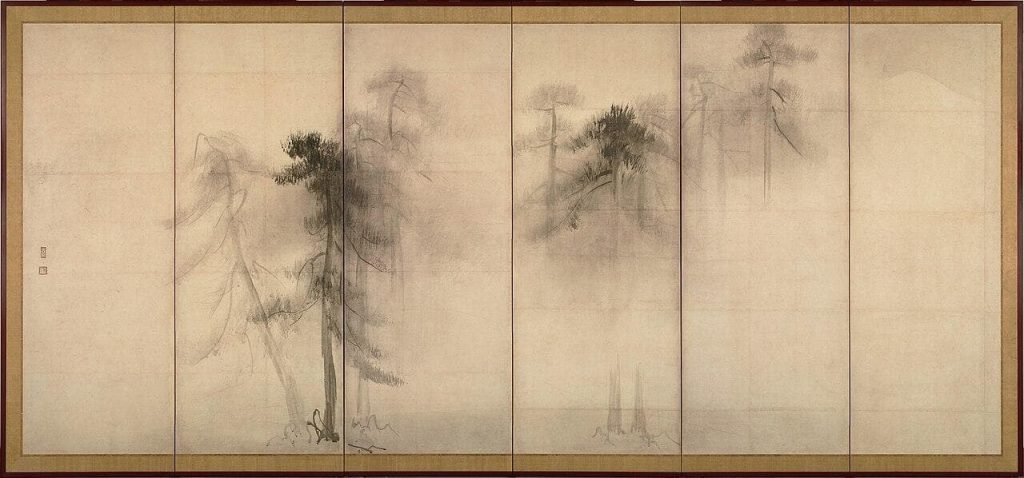The ontological argument attempts to prove that a “maximally great being” must exist, that being God.
God is the greatest thing ever and things that exist are greater/better than things that don’t. Therefore, God must exist.
Is existence better?
The argument asserts that non-existence is a flaw. Since God, by definition, has no flaws, he must exist. It’s better to exist than not to exist.
That’s a rather peculiar way to look at the world. Are unicorns worse than horses for not existing?
Is existence better than non-existence? Think of a webpage chocked full of text, images and more. It would be unreadable, unusable even. That’s why, in web design, there’s ‘white space’ around the elements of text and images. This non-existence or emptiness allows the page to be understood. Without such space, the parts would all be crammed up against each other, unreadable.
In Japanese art, this emptiness or negative space (Ma) is significant, part of the composition of the art.

Non-existence is necessary because space is room for motion to occur. Most of the cosmos is empty space; the atom is mostly empty. Therefore, non-existence is critical for existence. So, the existence of life is born from the non-existence of life; atoms are not living, and neither is space: no space, no chemistry, no life.
In Buddhism, the boundless emptiness is what existence is. It’s the Idea of Sunyata in Mahayana Buddhism. There is no intrinsic, fixed, perpetual self to existence—everything is in motion.
Thought and Greatness
God is defined as that ‘which no greater can be conceived’
The oddity of the statement further suggests that God is the greatest thing we can think of. But does this limit God to merely our thoughts? If it can’t be thought of, it doesn’t exist. We can only imagine and fit so much into our ideas; our minds can conceive of complex ideas, so we abstract them into simple ones. We simplify reality to make it make sense.
To merely state something exists or doesn’t based upon whether or not we can imagine it makes reality a slave to our mind only. To believe the cosmos bends itself to fit our knowledge or ignorance is to follow the fallacy of Hypostatisation. If God is limited to our thoughts, then God has limits, as does our mind. The claim shows that people create gods. Gods exist as we define them. It’s our creativity as it works here, not a god.
Beyond imagination is greater than the limits of imagination. The cosmos is greater than our imagination, so by that, it means the cosmos is greater than the God of the Ontological Argument.
It is not presumptuous to believe that things only exist if we can imagine them? What’s going on here is not an argument but a recital, using other ideas without ever proving them to be correct
Also, if he is great at only the things we value, like love, compassion, etc, then what of those things don’t we appreciate? What about negative features? Are they maximally repulsive, wrong, incoherent, or vague?
If not, then it’s cherry-picking, limiting God to what things we find desirable and valuable, and therefore showing God to be artificial. Deffiing do ti fit into the limtes we set.
The way the logic is being used here seeks to enslave it to what is needed, not what is the truth.
The greatest thing we can imagine, but God, is also claimed to be mysterious and beyond comprehension, imagination, and conceptual. God is both comprehensible and incomprehensible.

